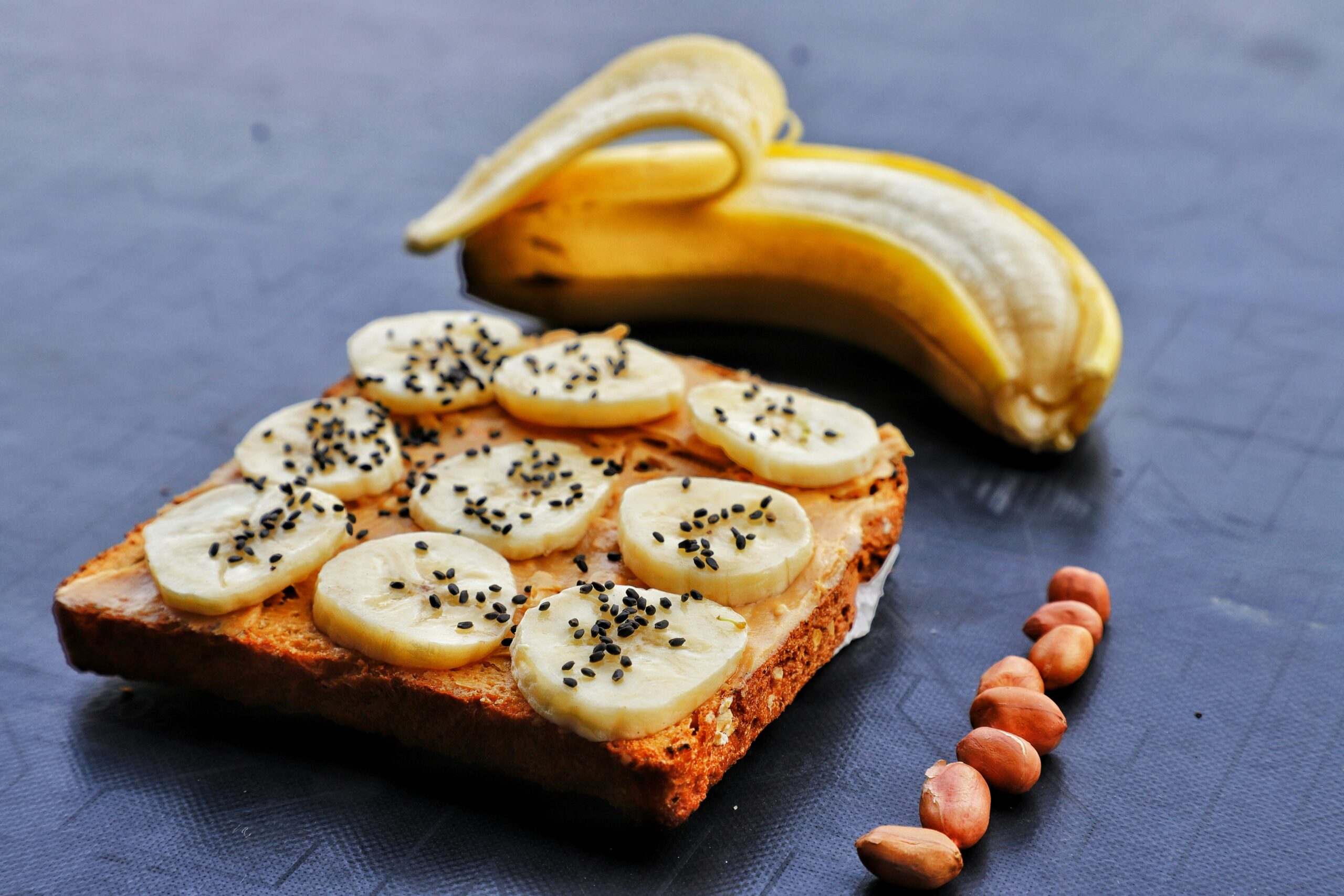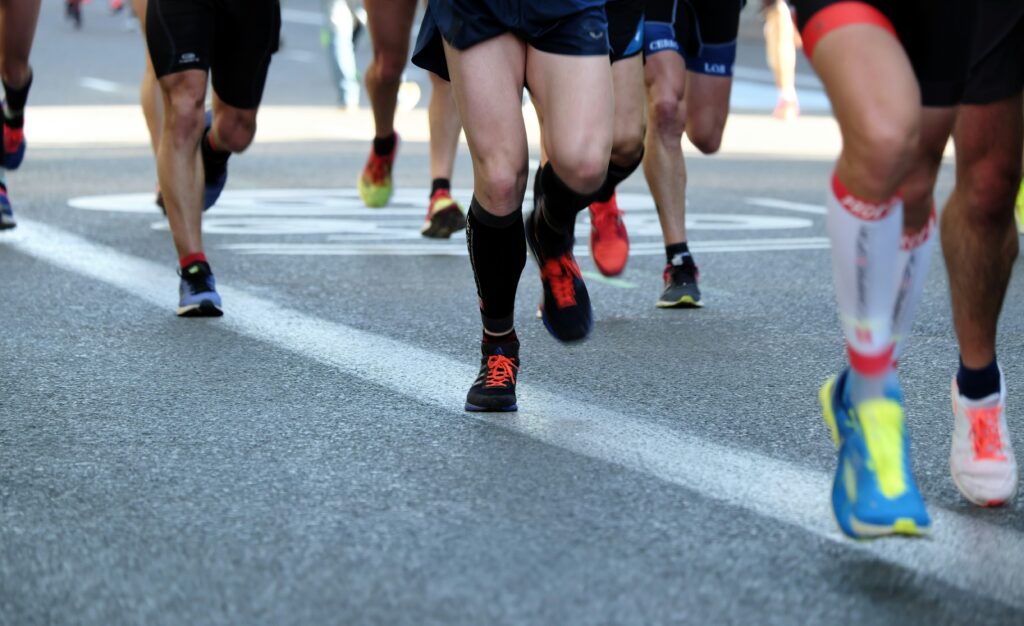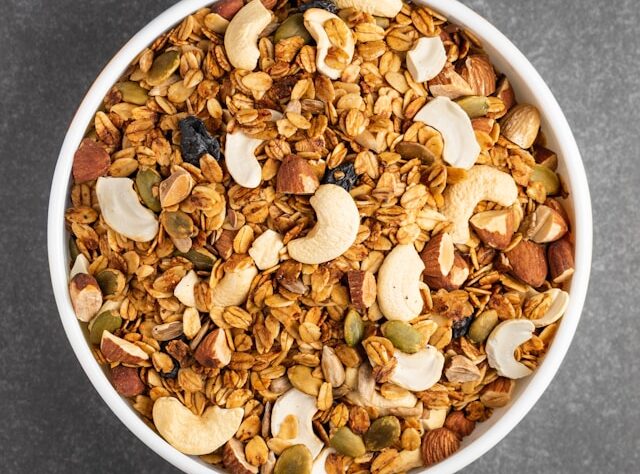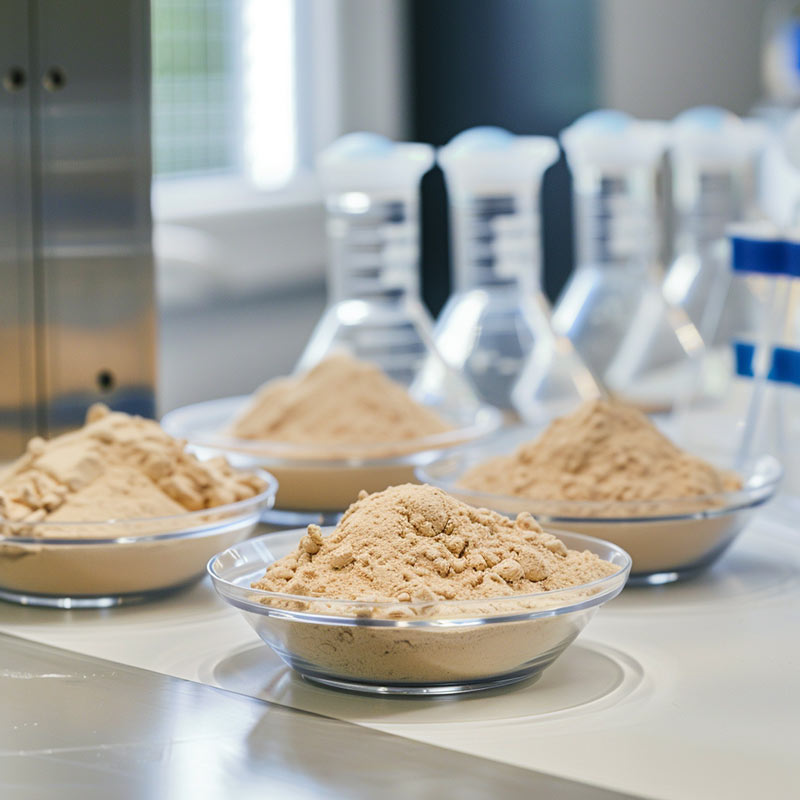Carb Loading for the Zurich Marathon

Why Full Glycogen Stores Can Make or Break Your Race
Carb loading isn’t a trend — it’s a science-backed strategy for optimizing endurance performance. Especially in races like the Zurich Marathon, where most runners are on the course for well over 90 minutes, sufficient carbohydrate availability is crucial to prevent performance crashes, also known as “hitting the wall.”
Numerous studies confirm: properly executed carb loading can improve endurance performance by up to 2–3%. In marathon terms, that can mean saving several minutes. But it’s not just about what you eat — timing, quantity, and understanding the why are equally important.
The Physiology Behind It: Glycogen as a Limiting Factor
Glycogen is the storage form of glucose in your muscles (300–500 g) and liver (approx. 100 g). During long, intense endurance efforts — like a marathon — glycogen is the primary energy source, especially at intensities over 60–70% of VO₂max.
Once glycogen stores are depleted, performance drops sharply. The body switches to fat metabolism, which is slower and less efficient — often referred to by runners as “hitting the wall” or “bonking.”
What Is Carb Loading — and Why Does It Work?
Carb loading refers to the strategic increase of daily carbohydrate intake in the 1–3 days before a race, while simultaneously reducing training volume. The goal is to maximize glycogen stores beyond normal levels — also known as supercompensation.
Studies (e.g., Burke et al., 2011) show that consuming 8–12 g of carbohydrates per kilogram of body weight per daycan boost glycogen storage by up to 50%. This provides more available fuel during the race and delays the point of fatigue significantly.
⚠️ Common Carb Loading Mistakes — and How to Avoid Them
Despite strong evidence supporting carb loading, implementation often fails due to the following:
- Underestimating the quantity required: 700 g of carbs per day (for 70 kg body weight) equals approx. 2800 kcal from carbs alone — difficult to reach without liquid and compact carb sources.
- Too much fiber: Whole grains, legumes, and raw vegetables may be healthy, but they’re filling — making it harder to consume enough carbs.
- Fatty meals: Fat slows down gastric emptying and delays carbohydrate absorption.
- Unfamiliar foods or gels: Trying new products right before race day can lead to gastrointestinal distress.
- Too little hydration: Glycogen binds water — approx. 3 g per 1 g glycogen — so sufficient fluid intake is essential during carb loading.

🥣 Example Day: Carb Loading for a 70 kg Runner
Target: 560–700 g carbohydrates/day
Time | Sample Food | Carbs (g) |
Breakfast | White bread with jam, fruit juice | 100 |
Snack | Rice cakes with honey, banana | 80 |
Lunch | Pasta with tomato sauce, white bread | 150 |
Afternoon | Gummy bears, dates, isotonic drink | 100 |
Dinner | Mashed potatoes, rice-based dish, pudding (optional) | 150 |
Late Evening | Toast with jam, fruit juice | 120 |
💡 Tip: Liquid carbohydrates (e.g., sports drinks, juice, maltodextrin) make it easier to reach your daily target without overloading the stomach.

Carb Loading & Body Weight — An Unwanted Side Effect?
Many runners report gaining 1–2 kg during carb loading. This is normal — and actually desirable. Glycogen storage includes water retention (approx. 3 g water per 1 g glycogen), which is physiologically necessary and even beneficial: it improves thermoregulation and increases plasma volume, supporting endurance performance.
So: A small weight gain? That’s a good sign your carb loading is working.
Race Day Nutrition — The Final Piece
Even with full glycogen stores, pre-race breakfast is critical. The goal is to stabilize blood glucose without stressing your digestive system.
- 3–4 hours before the start:
Light, low-fiber, low-fat meal – e.g. white bread with honey, banana, porridge - 30–60 minutes before the start (optional):
Small snack or half a gel — only if tested in training - During the race:
Stick to your practiced fueling strategy — avoid last-minute changes
✅ Carb Loading Checklist – Zurich Marathon Edition
- Reduce training 2–3 days before the race
- Consume 8–10 g of carbs/kg body weight daily
- Avoid high-fiber or high-fat meals
- Maintain proper hydration, incl. electrolytes
- No last-minute product experiments
- Final large meal: evening before the race
- Breakfast 3–4 hours before the start
- Optional: small snack before the gun
- View slight weight gain as a positive sign
Conclusion: If You Understand It, You Load Better
Carb loading is not a last-minute trick — it’s a planned, evidence-based process for optimizing endurance performance. When you understand the physiology and apply it strategically, it can be the key to going from a good marathon to a great one.
At the Zurich Marathon 2025, every fork of pasta and every glass of juice can help determine how far and how fast you’ll go. You’ve trained hard. Now it’s time to load.
Further Reading & Research
- Burke, L. M., Hawley, J. A., Wong, S. H., & Jeukendrup, A. E. (2011). Carbohydrates for training and competition. Journal of Sports Sciences, 29 (sup1), S17–S27.
- Jeukendrup, A. (2017). Periodized Nutrition for Athletes. Sports Medicine, 47 (Suppl 1), 51–63.
- Ivy, J. L. (2004). Regulation of muscle glycogen repletion, muscle protein synthesis and repair following exercise. Journal of Sports Science & Medicine, 3(3), 131.

